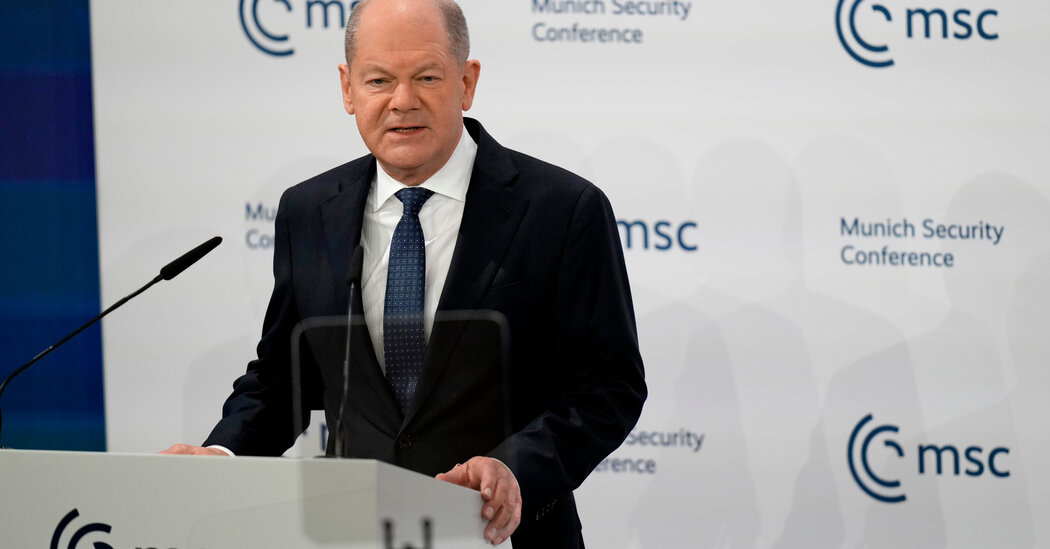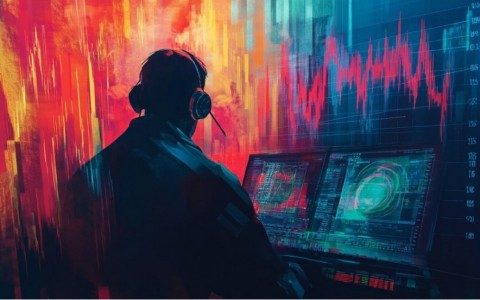Chancellor Olaf Scholz of Germany on Saturday accused Vice President JD Vance of unacceptably interfering in his country’s imminent elections on behalf of a party that has played down the atrocities committed by the Nazis 80 years ago.
A day after Mr. Vance stunned the Munich Security Conference by telling German leaders to drop their so-called firewall and allow the hard-right Alternative for Germany, or AfD, to enter their federal government, Mr. Scholz accused Mr. Vance of effectively violating a commitment to never again allow Germany to be led by fascists who could repeat the horrors of the Holocaust.
“A commitment to ‘never again’ is not reconcilable with support for the AfD,” Mr. Scholz said at the conference on Saturday morning, in an address opening the gathering’s second day.
Mr. Scholz said the AfD had trivialized Nazi atrocities like the concentration camp at Dachau, which Mr. Vance visited on Friday. He said Germany “would not accept” directives from outsiders about how to run its democracy — and certainly not to work with such a party.
“That is not done, certainly not among friends and allies,” Mr. Scholz said. “Where our democracy goes from here is for us to decide.”
Mr. Scholz’s comments were the latest in a series of critiques of Mr. Vance’s speech from German politicians, including Friedrich Merz of the conservative Christian Democrats, who leads the polls for next week’s chancellor election. Mr. Scholz’s Social Democrats are running third or fourth in most polls. The AfD is running second, and its chancellor candidate, Alice Weidel, met Mr. Vance on Friday in Munich.
No party in the German Parliament will join with the AfD to form a government. Parts of the AfD have been classified as extremist by German intelligence. Some of its members have been convicted of violating German law against the use of Nazi slogans. Others have been arrested for trying to overthrow the federal government.
That collective shunning of the AfD and other extremist parties is known as the firewall. Mr. Vance took aim at it on Friday, saying the AfD and other hard-right parties across Europe represented legitimate voter concerns about high levels of migration into European countries from the Middle East and elsewhere.
“There is no room for firewalls,” Mr. Vance said.
Attendees at Mr. Vance’s speech on Friday had been expecting to hear details of the Trump administration’s plans for Ukraine peace talks and NATO defense policies. Instead, they heard the vice president call restrictions on free speech a greater threat to Europe than military aggression from Russia or China.
Mr. Scholz chided Mr. Vance for that focus in a question-and-answer session after his speech. He was asked by Zanny Minton Beddoes, the editor in chief of The Economist, if Mr. Vance had made any points in his speech worth reflecting on.
“You mean all these very relevant discussions about Ukraine and security in Europe?” Mr. Scholz said, drawing laughter from the audience.
Then he addressed Mr. Vance’s critique of European speech restrictions directly.
“We should be very clear that free speech in Europe means that you are not attacking others in ways that are against legislation and laws we have in our country,” Mr. Scholz said. “And that’s the case. There is no difference between difference between the digital world and the analog world to say it like this. And we have to be very clear that hate and all this, which is so bad for our societies, should be not the reality of public debate.”


